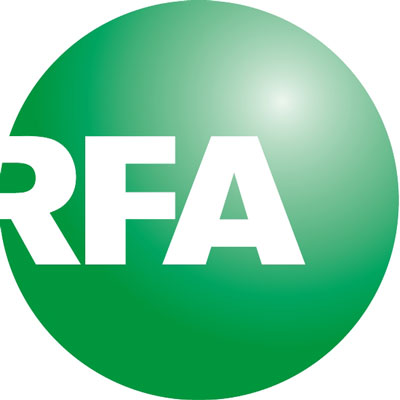Villagers in parts of eastern Myanmar’s Kayin state are afraid to drink water from local creeks and ponds, despite official assurances that the black-colored water has no connection to a nearby military-owned coal-powered cement plant, officials and residents said at the weekend.
After residents in communities west of the Salween River near Hpa-an township complained that blackened water and dead fish had been flowing through waterways that they use daily, Kayin state social affairs Minister Bo Bo Wai Maung held a briefing on Dec. 26 to assuage their concerns.
“Analysis shows us that it has nothing to do with coal,” Bo Bo Wai Maung said.
“According to the current chemical composition found in the water, both the quality of drinking water and bathing water are in line with World Health Organization standards,” said the minister. Tests run by an environmental NGO also found that the water met WHO specifications.
Some villagers have resorted to buying potable water, but others cannot afford to purchase it. Residents also say they are concerned about the risk of lung disease from using the discolored water.
Complaints about the water discoloration first surfaced in early October 2019 when the waterways turned dark, and the fish began to die. That same month, the state’s chief minister Nang Khin Htwe Myint declared that she could not drink water from the area.
Nan Say Awa, a former Kayin state lawmaker, said at Saturday’s press briefing that she was very grateful to state ministers for clarifying that the discoloration issue is not related to coal. She also urged local health department to educate locals about the issue.
“The villagers still cannot accept the fact that this water is safe to drink because it [the discoloration] occurred suddenly in 2019,” she said. “They also link their poor hygiene to this water issue, so the health department should do a lot of work to educate people here every two months or so.”
Than Naing, Kayin state’s minister of planning, finance, and development, said at the briefing that officials will relay the concerns of those living near the cement plant who are suffering from the operation’s environmental impacts to other senior-level officials.
‘I dare not drink it’
Though the state government has stated that the water is safe to drink, villagers say they are still reluctant to consume it.
Nay Shin from Nga Pyaw Taw village told RFA that the green PCV pipes hooked up to the motor in his well are covered in a charcoal black substance and that he will not drink the water after testing its quality.
“Because the pipe is getting black, I dare not drink it,” he said.
“Villagers just want to be able to use the water again as they had in the past,” Nay Shin added.
Nang Kyi Htay, a resident of Nat Kone village, said she wants the original well water to be restored because not all villagers have enough disposable income to buy potable water.
“Everyone has to buy water,” she said. “Some families can afford to buy water because their children work in Thailand [and send money back], but not everyone can afford it. Even I can’t always afford it.”
“I want to tell the authorities to help everyone get the clean water back,” she added. “We are worried about the children in the village. In the past, children developed lung problems when they drank this water.”
Some local people believe that the ponds and creeks were contaminated by the nearby cement plant owned by the military-operated conglomerate company Myanmar Economic Corporation (MEC).
Built in the 1980s, the plant used to operate on natural gas but began using coal power in 2018. Residents and environmental activists have objected to the use of coal power since 2016 when the energy change was announced.
In 2019, Soe Hlaing, Kayin state’s minister of electricity and industry, told RFA that state officials had no authority over the plant’s management because the operation was owned by MEC. Myanmar’s military is the country’s most powerful institution, with a business empire that largely avoids scrutiny in the country’s nascent democracy.
High levels of chlorine, phosphate
Test results from 10 samples of water taken from affected areas taken in 2019 by the Myanmar environmental NGO Advancing Life and Regenerating Motherland (ALARM) indicated that the water quality met WHO standards. But the tests also showed that some of the samples contained high levels of chlorine and phosphate, which can poison fish.
Some results also indicated high levels of biochemical oxygen demand and chemical oxygen demand, which measure the decay of organic matter in water and can deplete oxygen that is essential for aquatic life.
In a September 2020 report on environmental pollution at the Myaing Kalay cement plant, ALARM said that the factory needed to control chlorine released from composite refuse derived fuel.
A June 2019 environmental assessment of Myanmar by the World Bank said that deteriorating water quality driven by mining, logging, and plantations would have a particularly adverse impact on the poor in the country of 54 million, a population that gets more than half of its animal-based protein from fish.
“Mining and other land concessions, including for agriculture, have led to deforestation, land degradation, deterioration of water quality, flooding and landslides, biodiversity loss, and depletion of inland and coastal fisheries,” said the survey.
Reported by Saw Nyunt Thaung for RFA’s Myanmar Service. Translated by Thane Aung. Written in English by Roseanne Gerin.
PrintRadio Free | Radio Free (2020-12-28T23:20:14+00:00) Myanmar Villagers Shun Blackened Water Despite Official Assurances It’s Safe. Retrieved from https://www.radiofree.org/2020/12/28/myanmar-villagers-shun-blackened-water-despite-official-assurances-its-safe/
Please log in to upload a file.
There are no updates yet.
Click the Upload button above to add an update.
